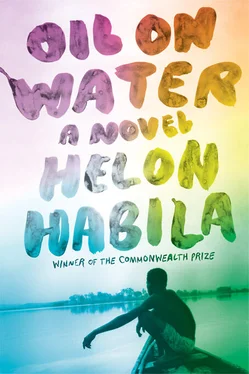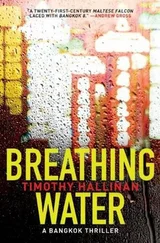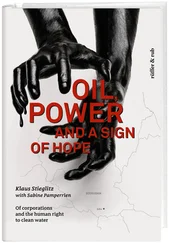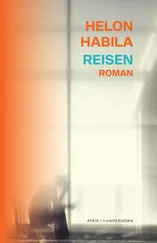The moon was out by now, its silver light murky and mobile on the water. It was a canoe, and in the transforming light of the moon it looked longer than it really was, almost endless, its rear end merging into the water.
— It’s not our boat!
We stared, standing close together like skittish colts, as a man came out of the canoe and pulled it onto the beach. Then he approached us with the oar still in his hands, partly raised across his chest like a shield. There was a second figure in the boat, holding a hurricane lamp, its dim, almost invisible flare bobbing up and down with the waves. In the poor light only the man’s broad outline was visible: he looked thin and wispy, like a spirit of the forest. The oar came up to his shoulder, his shirt was whitish and even in the dark I could tell it was the sort of rough and shapeless homespun worn by the fishing folk in this area. He advanced slowly, perhaps unsure what manner of reception to expect, but it was clear that he wasn’t here by accident, that he was here for us.
— Who are you?
Our guide stepped forward challengingly, towering over the tiny old man, seeking to reassert his lost authority.
— I come carry you go Irikefe. Them send me.
— Who sent you?
A redundant question. It was clear the militants had kept our boat and had convinced the boatman — with money but more probably with terror — to take us to wherever we could get lodging for the night. Keeping our new and spacious boat was not a surprising thing for the militants to do, but sending the boatman back for us was definitely unexpected. They weren’t inhuman, after all. I was glad we weren’t spending the night on this spooky, cold and ravaged island. Somehow the eight of us all fit into the dugout canoe with its two planklike cross-benches. I sat on the wet floor, my back against somebody’s knees, my knees pulled up to my chin, and as we pulled away from the beach I lowered my head and listened to the rhythmic sound of the oar slicing the water and the occasional anxious question being thrown at the reticent boatman. He had the same answer to all our questions.
— Yes, sah. Irikefe Island. No far, but e far small. Soon we go get there.
His companion was a small boy of about ten, his son perhaps, who said nothing throughout the trip. No one in the boat had heard of Irikefe, so with our imaginations we built various versions of what awaited. I saw a hotel, with clean water, and a clean bed, and a huge meal; I saw a long restful sleep and an early departure tomorrow; I saw us reaching Port Harcourt before noon to a hero’s reception from our colleagues and editors; I saw my story on the front pages; and, finally, I saw myself being restored to my rightful place as a reporter. In the weeks to come we’d get drunk for free in our various press club rooms as we added yet another detail to the already overwrought tale of our daring adventure. I had a draft of my story in my head, and trapped for posterity in my point-and-shoot Sony digital camera were images of the gutted bodies half hidden in the bushes, the thatchless, burned-down huts, the bullet-broken palm trees, and the spectacular fire throwing up a cloud of smoke over the tall trees. I must have been lulled to sleep by the movement of the boat, for I came awake suddenly when the boat lurched up, then down, and then stopped. We were on shore. I got to my knees and looked to land. Trees, and far away what seemed to be dim flickers of light from houses or cars. The others were already jumping out of the boat. I joined them, but as we got set to go, we were stopped by the boatman’s voice.
— Wait small for Oga here. E be like say e no too well.
It was Zaq. He was hanging over the edge of the boat, retching into the water, and then he collapsed back inside it. We all rushed over to see him lying in a pool of water at the bottom, his sweaty face illuminated by the boatman’s lantern, his unfocused eyes staring up at us, breathing with difficulty through his mouth. I reached down and tried to pull him up, but it took three of us to get him out. We staggered to dry ground, where we sat him down and stood over him, unsure what to do next. The Lagos reporters stood to one side, looking at their watches, impatient to be off, not attempting to assist in any way. I knelt beside the boatman, who was trying to communicate with the bowed Zaq. As I touched his arm, which was hot and dripping with sweat, he looked up at me, licking his dry lips.
— If I can get a drink, I’ll be fine. I’m just tired. All I need is a drink. Just a little bit.
His voice in my ear was hoarse, whispery. I felt sad and disappointed by this once-great reporter, whose success and dedication had to some extent inspired my own career and doubtless that of many others. I turned away from the beseeching, pitiful grin on his sweaty face, and suddenly I felt angry. It was a helpless, directionless anger, and it disappeared almost as soon as it came.
— If we can get to a hotel you can have something, I’m sure. But we have to go now. It’s late already.
I moved away from him. He lurched to his feet, and the boatman went to him and held his left arm.
— Is. . is there a hotel nearby?
— Hotel? No hotel. We go shrine.
— Shrine?
— Yes. You get food at shrine.
— Did you hear what he said? Do you know where you’re going?
My shout reached the others, who had already put a good distance between themselves and us, drawn to the faraway lights, like camels scenting water, and they stopped and waited for us.
— Aren’t we going to a hotel? There must be a hotel here somewhere.
— The man said we’re going to a shrine. .
— Shrine? What shrine?
I had no answer for them, so I urged the alarmed boatman and his boy to keep walking. The man seemed harmless enough, and if he said we should go to some shrine, I was willing to follow him, especially if there was food to be had.
We went slowly, supporting the weak, dead-weight Zaq between us. Twice we had to stop as he slipped gasping onto the muddy ground. Then we dragged him up and started again. It was an arduous, backbreaking progress, worsened by the humidity in the airless, tree-bordered path, and I was soaked in sweat by the time we got to the shrine, about a quarter of a kilometer from the water. The thick vegetation suddenly disappeared and we were in an open yard where still, silent shapes couched in darkness watching our approach. Our steps faltered, finally coming to a stop in instinctive response to the menacing air of the immobile figures ahead of us. At first I thought: the kidnappers, waiting in ambush. But why were they so still? The boatman lifted his lamp so the light fell on the figures.
— Na statue. Many statue. For the shrine.
We passed the statues warily, once more packed together like skittish colts, our heads swiveling wildly to keep the figures in view, half expecting them suddenly to jump on us. At the edge of the yard we could see an open doorway in which a lamp glowed brightly. The boatman disappeared into the hut and we waited outside, straining to hear the exchange coming faintly from within, but we didn’t have to wait long. He soon came out, followed by a man leaning on a stick, a blanket flowing down from his shoulders.
— We have been expecting you.
He spoke in English, his words slow and distinct, and he looked from face to face as he spoke.
Nkem stood boldly, almost challengingly, before the man, his arms akimbo. — You were expecting us?
— Yes. I am Naman, assistant to the head priest. Apologies, the head priest is not well and cannot be here to receive you. We’ve been instructed to take care of you for the night. Tomorrow you can catch the ferry back to the city.
The man’s voice carried easily over our heads and into the open yard behind us, a voice accustomed to addressing congregations. There was confidence in the way he raised his hand as he spoke, and in the way he threw his chest forward when he moved, and yet the voice remained even, clear, polite.
Читать дальше












